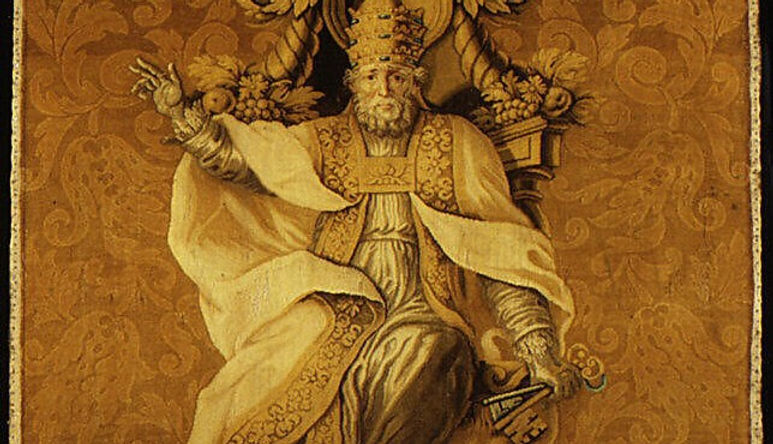St. Athanasius
Chief of the Apostles, St. Peter
Rome is called “the Apostolic throne.” (Athanasius, Hist. Arian, ad Monach. n. 35, [362 A.D.]).
“The Chief, Peter.” (Athanasius, In Ps. xv. 8, tom. iii. p. 106, Migne [362]).
“As soon as Athanasius heard, he, knowing the fury of the heretics, sailed to Rome, that the synod might be held as arranged.” (Athanasius, Historia Arianorum).
“The Egyptians wrote to everyone and to Julius, bishop of Rome. The Eusebians also wrote to Julius and, thinking to frighten me, requested him to call a council, and to be himself the judge, if he so pleased.” (Athanasius, Apologia contra Arianos [A.D. 351]).
“A charge had been laid by some people against the bishop of Alexandria before the bishop of Rome, as he had said that the Son was made, and not one in substance with the Father. This had given great pain to the Roman council; and the bishop of Rome expressed their united sentiments in a letter to his namesake. This led to his writing an explanation which he called The Book of Refutation and Defence.” (De Synodis, On Pope St. Dionysius of Rome [A.D. 359]).
“But to convince him, the bishop said : "How can this be done against Athanasius? How can we condemn a man who has been fairly acquitted first by one council, then by another assembled from all parts of the world, and whom the church of Rome dismissed in peace? Who will approve of us if we reject in his absence one whose presence we welcomed and admitted to communion? There is no such ecclesiastical canon; nos have we ever received such a tradition from the fathers, which tradition they might have received from the blessed and great apostle Peter."
“. . . The emperor therefore writes to Rome, and again palace officials, notaries, and counts are sent with letters to the prefect, that they may either lead Liberius away from Rome by craft, and send him to himself at the camp, or else persecute him by violence.
“After the emperor had frequently written to Rome, had threatened, sent legates, and schemed, the persecution spread to Alexandria. Liberius was dragged before him, but boldly speaking out, he said to him : " Stop persecuting the Christians ; do not try to bring profanity into the Church through me. We are ready to endure anything, rather than to be called Ariomaniacs. We are Christians; do not force us to become Christ's enemies. We also advise you not to fight against him who gave you this rule, nor to show impiety to him instead of thankfulness. Do not persecute those who believe in him.". Thus they tried at first to corrupt the church of the Romans, wishing to introduce impiety into it. But Liberius, after he had been exiled for two years, gave way, and from fear of threatened death he subscribed. But this also shows their violence, and the hatred of Liberius against the heresy, and his support of Athanasius, whilst he had a free choice. For what is done under torture against a man's first judgement is not the willing deed of those who fear, but that of the tormentors. These latter attempted everything to support the heresy, while the people in every church, holding the faith they had learnt, waited for the return of their teachers.
“And they all rejected the anti-Christian heresy, and avoided it like a serpent. But although the ungodly had done all this, yet they thought they had accomplished nothing, so long as the great Hosius escaped their knavish tricks. And now they set out to extend their fury to that venerable old man. They felt no shame that he is the father of the bishops, nor did they care that he had been a confessor, nor respect the length of his episcopate, in which he had continued more than sixty years, but they set aside everything and only looked at the heresy, truly men who neither "fear God nor regard man." So they went to Constantius and again argued as follows : "We have done everything ; we have banished the bishop of the Romans, and before him many other bishops, and we have filled every place with alarm. But these strong measures of yours are nothing to us, nor have we succeeded at all, so long as Hosius remains. While he is in his own place, they all also are in their churches, for he is competent in reason and in faith to persuade all against us. He is the president of councils, and his letters are heard everywhere, and he put forth the faith in Nicaea, and proclaimed everywhere that the Arians were heretics. If therefore he remains, the banishment of the rest is superfluous, for our heresy will be put out. Begin, then, to persecute him also, and spare him not, old as he is. Our heresy does not recognize the honourable grey hairs of the aged." (Historia Arianorum [A.D. 358]).

